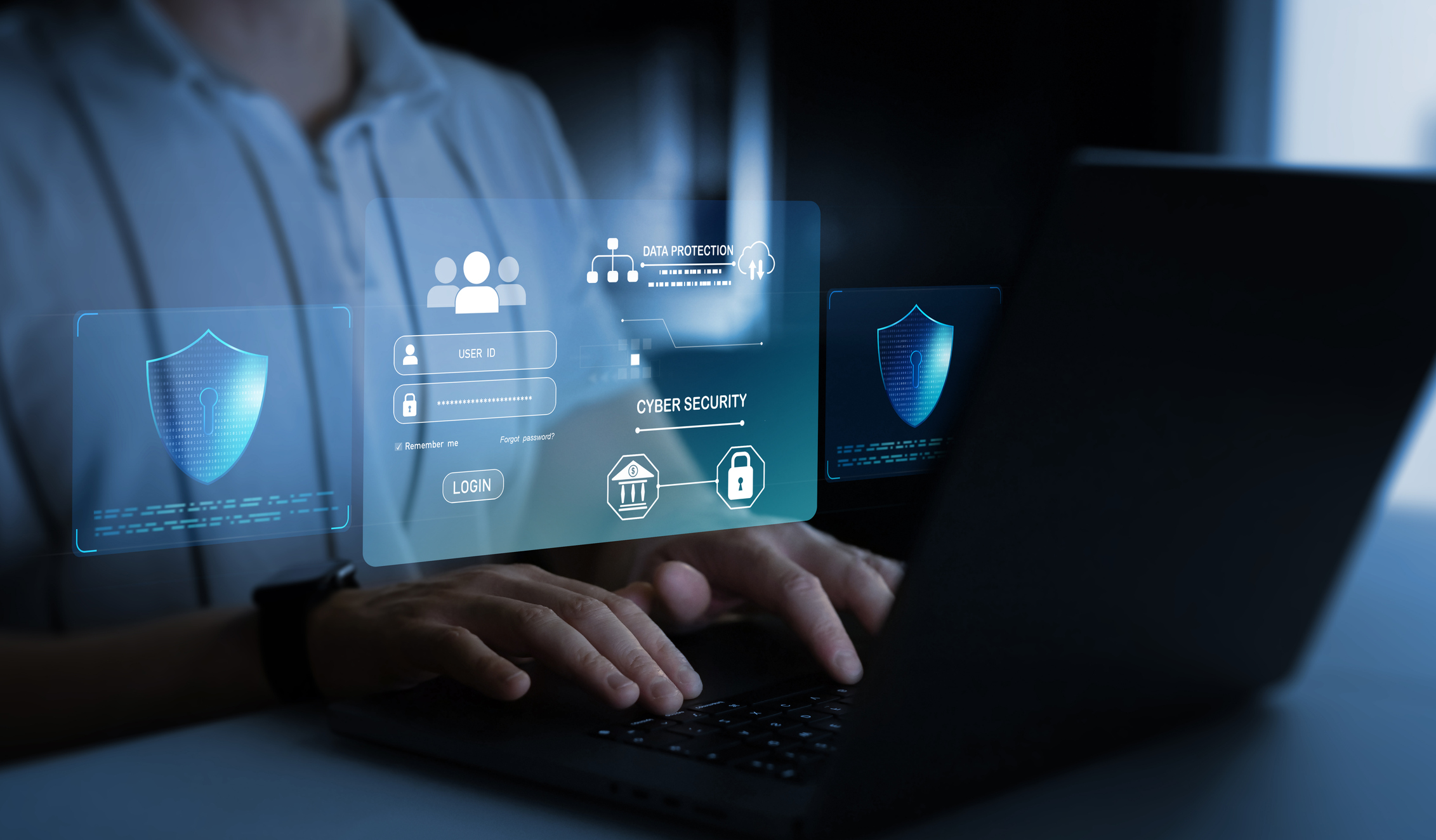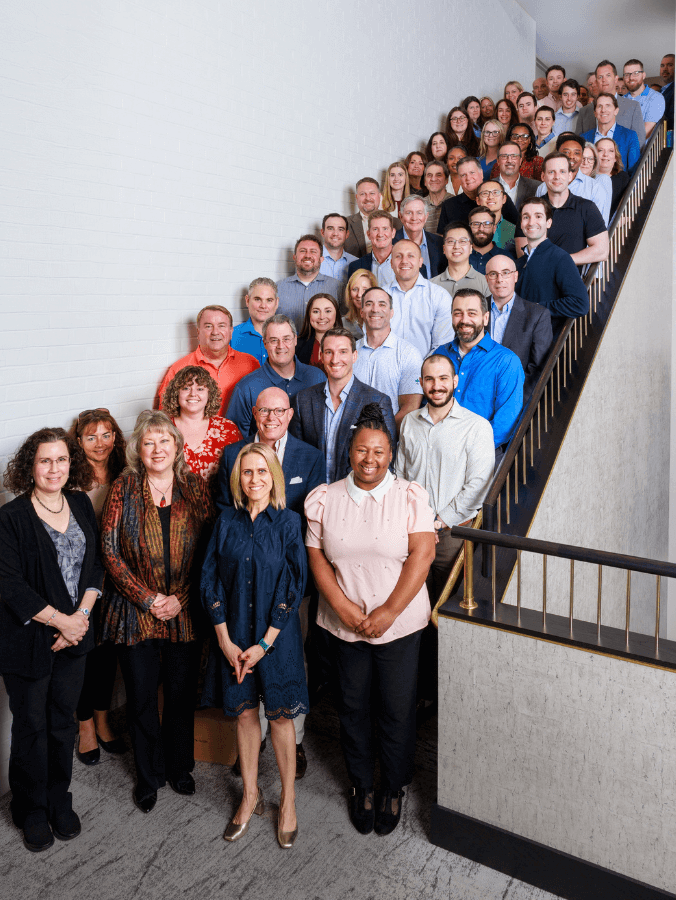-
Who We Are
Who We Are
For the last century, we’ve dedicated ourselves to empowering families like yours to prosper and endure. Like many of the leading families we serve, we have been through our own wealth journey.
Discover Pitcairn -
What We Do
Wealth Momentum®
The families we serve and the relationships we have with them are at the center of everything we do. Our proprietary Wealth Momentum® model harnesses powerful drivers of financial and family dynamics, maximizing the impact that sustains and grows wealth for generations to come.
Explore - Insights & News

As technology becomes ever more integrated into our daily lives, the risks that come with it continue to evolve. At Pitcairn, protecting your family’s privacy, financial assets, and personal information is central to our mission.
October is Cybersecurity Awareness Month. Here we’re highlighting three areas where vigilance matters most — social engineering, smart home vulnerabilities, and data leaks — along with actionable steps to protect your family and the ways Pitcairn helps keep you secure.
1. Social Engineering: The Human Side of Hacking
What It Is:
Social engineering exploits human behavior rather than technical flaws to gain access to sensitive data. Two common tactics include:
-
Whale Phishing: Targeting high-profile individuals, such as executives or family principals, with highly personalized messages.
-
Spear Phishing: Crafting emails that appear legitimate but contain malicious links or requests.
Example:
An attacker sends an email that looks like it’s from your financial advisor requesting wire transfer instructions. The message seems authentic, but the link leads to a fake portal designed to steal your credentials.
How to Protect Yourself:
-
Verify before you act: Confirm any unusual requests with a quick phone call using a known number.
-
Enable multi-factor authentication (MFA): Adds an extra layer of protection to your accounts.
-
Stay informed: Regular awareness training dramatically reduces the likelihood of being deceived.
How Pitcairn Helps:
We never rely solely on email for financial instructions. Every transaction is verified by phone, directly with authorized family members, using pre-confirmed contact information.
2. Smart Home Vulnerabilities: Security Beyond the Front Door
What It Is:
Smart devices—from cameras and thermostats to TVs and voice assistants—enhance convenience but can also open the door to cyber intrusions if not properly secured.
Example:
A hacker gains access to a poorly protected smart camera, using it to observe your household routines or gather private details.
How to Protect Yourself:
-
Secure your network: Use a strong Wi-Fi password and consider a separate network for smart devices.
-
Keep software updated: Install firmware updates promptly to patch known vulnerabilities.
-
Disable what you don’t use: Turning off unnecessary features limits exposure.
3. Data Leaks: Keeping Personal Information Private
What It Is:
A data leak occurs when sensitive personal or financial information—such as Social Security numbers, account details, or health records—is exposed online or sold on the dark web.
Example:
A third-party service provider experiences a breach, and your personal data ends up for sale to cybercriminals.
How to Protect Yourself:
-
Use strong, unique passwords: A password manager can simplify this process.
-
Enroll in credit monitoring: Take advantage of free monitoring if offered after a breach.
-
Limit data sharing: Provide personal details only to trusted sources and only when necessary.
How Pitcairn Helps:
We partner with vetted vendors for identity protection, monitor third-party cybersecurity practices, and enforce strict protocols to safeguard our clients’ confidential information.
Top Tips for Staying Cyber-Safe
-
Add another digital lock with Two-Factor Authentication (2FA).
-
Think before you click—urgent requests, odd or misspelled website links and email addresses are red flags.
-
Use unique passwords everywhere and store them securely.
-
Share sensitive documents only via encrypted channels, not email.
-
Update regularly—automatic software updates close known vulnerabilities.
-
Avoid public Wi-Fi for banking or financial transactions.
-
Protect children’s identities—kids are frequent targets of data theft.
-
Freeze your credit when not in use to block unauthorized access.
-
Beware of imposters—no legitimate advisor or bank will ever ask for your password or PIN.
- Cyber insurance is available, but isn’t a cure-all. Ultimately, you are the first line of defense.
Building a Stronger Digital Defense Together
At Pitcairn, cybersecurity is about more than technology—it’s about protecting what matters most: your family’s legacy, privacy, and peace of mind.
This October, make cybersecurity a family conversation. By staying alert and adopting proactive habits, we can work together to strengthen your digital security and protect your wealth for generations to come.
Disclaimer: Pitcairn Wealth Advisors LLC (“PWA”) is a registered investment adviser with its principal place of business in the Commonwealth of Pennsylvania. Registration does not imply a certain level of skill or training. Additional information about PWA, including our registration status, fees, and services is available on the SEC’s website at www.adviserinfo.sec.gov. This material was prepared solely for informational, illustrative, and convenience purposes only and all users should be guided accordingly. All information, opinions, and estimates contained herein are given as of the date hereof and are subject to change without notice. PWA and its affiliates (jointly referred to as “Pitcairn”) do not make any representations as to the accuracy, timeliness, suitability, completeness, or relevance of any information prepared by any unaffiliated third party, whether referenced or incorporated herein, and takes no responsibility thereof. As Pitcairn does not provide legal services, all users are advised to seek the advice of independent legal and tax counsel prior to relying upon or acting upon any information contained herein. The performance numbers displayed to the user may have been adversely or favorably impacted by events and economic conditions that will not prevail in the future. Past investment performance is not indicative of future results. The indices discussed are unmanaged and do not incur management fees, transaction costs, or other expenses associated with investable products. It is not possible to invest directly in an index. Projections are based on models that assume normally distributed outcomes which may not reflect actual experience. Consistent with its obligation to obtain “best execution,” Pitcairn, in exercising its investment discretion over advisory or fiduciary assets in client accounts, may allocate orders for the purchase, sale, or exchange of securities for the account to such brokers and dealers for execution on such markets, at such prices, and at such commission rates as, in the good faith judgment of Pitcairn, will be in the best interest of the account, taking into consideration in the selection of such broker and dealer, not only the available prices and rates of brokerage commissions, but also other relevant factors (such as, without limitation, execution capabilities, products, research or services provided by such brokers or dealers which are expected to provide lawful and appropriate assistance to Pitcairn in the performance of its investment decision making responsibilities). This material should not be regarded as a complete analysis of the subjects discussed. This material is provided for information purposes only and is not an offer to sell or the solicitation of an offer to purchase an interest or any other security or financial instrument.






